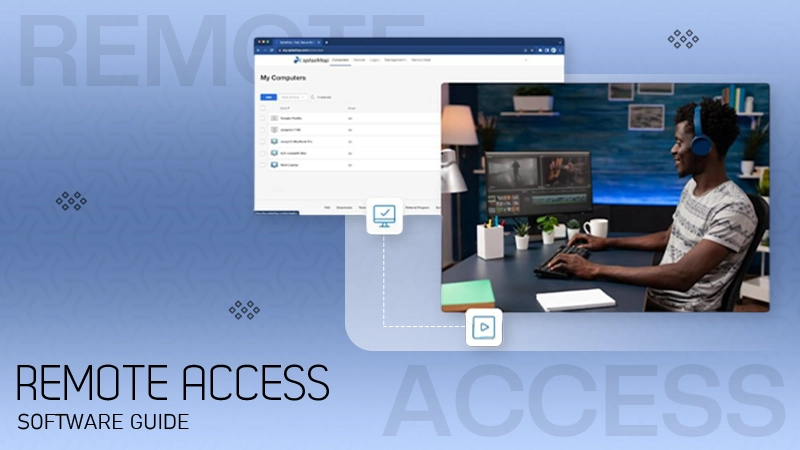Because healthcare data is time-sensitive and life-critical, downtime can directly affect patient care.
Data Recovery Challenges in Healthcare System Integrations
- Why Data Recovery Matters in Healthcare Integrations
- Key Challenges in Data Recovery
- Best Practices for Data Recovery in Healthcare
- Current Trends in Data Recovery for Healthcare Integrations
- Leading Tools and Solutions for Healthcare Data Recovery
- Why Data Recovery Matters in Healthcare Integrations
- Role of Edenlab in Healthcare Integrations
- Case Example: Data Recovery During EHR Migration
- Future of Data Recovery in Healthcare
- Conclusion
- Frequently Asked Questions
Healthcare organizations worldwide are under immense pressure to digitize their operations, improve patient outcomes, and meet strict regulatory standards. As hospitals, clinics, and labs adopt advanced digital tools, healthcare integrations have become the backbone of seamless data exchange. However, one of the most pressing issues in this transformation is data recovery ensuring that critical patient information remains accessible, accurate, and secure, even in the face of system failures, cyberattacks, or integration mishaps.
In this article, we’ll explore the challenges of data recovery in healthcare integrations, discuss best practices, examine leading tools, and highlight key industry players, including Edenlab, a trusted name in health IT solutions.
Why Data Recovery Matters in Healthcare Integrations
Healthcare data is unlike any other. It is highly sensitive, constantly updated, and directly linked to human lives. When integrated systems like Electronic Health Records (EHRs), medical imaging platforms, or lab information systems face downtime or data corruption, the consequences can be severe:
- Delayed diagnosis or treatment
- Increased patient safety risks
- Regulatory penalties due to non-compliance (HIPAA, GDPR, etc.)
- Financial losses for healthcare organizations
That’s why healthcare providers prioritize reliable integrations with strong data recovery capabilities to safeguard continuity of care.
Key Challenges in Data Recovery
Even with advanced systems, including the hospital management system, data recovery in healthcare integrations is not straightforward. Below are the major challenges faced by organizations:
1. Complex Data Sources
Healthcare ecosystems combine multiple data formats—from HL7 and FHIR standards to medical imaging (DICOM) and IoT device data. Recovering such diverse datasets in a unified manner is highly complex.
2. Regulatory Compliance
Strict regulations (HIPAA in the U.S., GDPR in Europe) require healthcare providers to maintain data integrity and confidentiality. Any failed recovery attempt may trigger fines and legal action.
To manage these obligations effectively, many organizations turn to consent and privacy management platforms. While OneTrust is a well-known option, there are also strong OneTrust alternatives such as Usercentrics, which help healthcare providers ensure transparency, maintain user trust, and stay compliant with data protection laws.
3. Cybersecurity Threats
Ransomware attacks have surged in healthcare. When attackers encrypt patient records, recovery requires robust backup and security protocols to avoid permanent data loss.
4. System Interdependencies
A failure in one integration point (e.g., a lab interface) can disrupt the entire chain, making recovery a multi-layered process.
5. Real-Time Data Needs
Modern healthcare demands real-time data exchange. Traditional recovery methods that take hours or days are no longer sufficient.
Best Practices for Data Recovery in Healthcare
To overcome these challenges, healthcare organizations should adopt proven strategies.
- Implement Regular Backups – Schedule automated backups across all integrated systems to minimize data loss.
- Leverage Cloud Storage – Cloud-based recovery solutions offer scalability and faster restoration.
- Adopt Standard Protocols – Using standardized formats like HL7 and FHIR ensures interoperability during recovery.
- Test Recovery Plans Frequently – Run disaster recovery drills to identify weak points.
- Use Data Encryption – Protect backups with encryption to secure patient information.
- Partner with Specialists – Collaborating with trusted IT solution providers like Edenlab helps organizations strengthen recovery strategies.
Current Trends in Data Recovery for Healthcare Integrations
Healthcare IT is evolving quickly. Here are the top trends shaping data recovery:
- AI-driven Recovery – Machine learning tools predict potential failures and automate recovery.
- Blockchain Security – Immutable ledgers prevent tampering and improve trust in restored records.
- Hybrid Cloud Approaches – Combining on-premises and cloud solutions offers flexibility.
- Zero Trust Security – Ensuring every access request is verified before granting data access.
- Real-time Analytics – Continuous monitoring ensures quick detection and response.
Leading Tools and Solutions for Healthcare Data Recovery
| Tool / Solution | Key Features | Best For |
| Veeam | Fast recovery, cloud-native backups | Hospitals and clinics with hybrid IT setups |
| Acronis | AI-based ransomware protection | Organizations worried about cyber threats |
| Commvault | Compliance-focused recovery | Enterprises with strict regulatory needs |
| Rubrik | Automated recovery workflows | Large healthcare networks |
| Edenlab Solutions | Healthcare-specific integration & recovery expertise | Healthcare providers seeking tailored support |
Why Data Recovery Matters in Healthcare Integrations
Healthcare data is unlike any other. It is highly sensitive, constantly updated, and directly linked
to human lives. When integrated systems like Electronic Health Records (EHRs), medical
imaging platforms, HIPAA-compliant video conferencing tools, or lab information systems
face downtime or data corruption, the consequences can be severe:
Role of Edenlab in Healthcare Integrations
Edenlab has established itself as a trusted partner in healthcare IT. Known for developing FHIR-based systems, Edenlab focuses on interoperability, security, and data reliability. By offering custom healthcare integrations, Edenlab ensures that data recovery is not an afterthought but a core part of the integration process.
Some ways Edenlab adds value:
- Designing systems aligned with HL7 and FHIR standards
- Providing scalable solutions for healthcare networks
- Ensuring compliance with HIPAA, GDPR, and other regulations
- Offering consultation on disaster recovery strategies
Case Example: Data Recovery During EHR Migration
A large hospital network migrating from a legacy EHR to a modern, cloud-based solution faced multiple integration risks. With Edenlab’s expertise, the hospital implemented a hybrid recovery system that included encrypted cloud backups and automated rollback features. As a result, even during unexpected downtime, clinicians had uninterrupted access to critical patient data
Future of Data Recovery in Healthcare
Looking ahead, data recovery in healthcare will become even more crucial as digital twins, wearable IoT devices, and AI diagnostics enter mainstream healthcare. With these innovations, the need for resilient healthcare integrations will grow—making proactive planning and partnerships essential.
Conclusion
Healthcare organizations cannot afford data loss or downtime in integrated systems. From regulatory compliance to patient safety, data recovery is a mission-critical component of healthcare integrations. By adopting best practices, leveraging modern tools, and working with reliable partners like edenlab.io, providers can ensure seamless, secure, and future-ready healthcare operations.
Frequently Asked Questions
Why is data recovery critical in healthcare integrations?
What role does Edenlab play in data recovery?
Edenlab provides specialized healthcare IT solutions, ensuring robust integration and recovery strategies tailored to providers’ needs.
Which tools are best for healthcare data recovery?
Solutions like Veeam, Commvault, Rubrik, and Edenlab’s customized systems are widely used.
How often should recovery plans be tested?
At least quarterly, with additional drills after major system changes.
What’s the biggest threat to healthcare data today?
Ransomware attacks and regulatory non-compliance are the top concerns.
“Stop selling. Start helping.” — Zig Ziglar (Author) And the personnel who sell the hardest to clients and help the…
Digital storefronts are always at risk of losing files. In the case of a system failure, the effects on sales…
USB drive not showing up, acting slow, unreadable, or showing as RAW? Please, don’t format it immediately. I am going…
“Those who do not live in the past cannot live in the future.” — Lord Acton (19th-century historian) This is…
Healthcare data is dynamic. It travels through cloud backups, billing offices, nurse stations, insurance systems, reception desks, and occasionally across…
You’ve poured your heart and soul into creating your website. Every blog post, product description, and stunning image is a…
For a long time, remote desktop technology was the domain of IT support technicians and spreadsheet-heavy administrators. If the connection…
Are you wondering what speech basics are and what you capture, how to store it and analyse the same without…
If your Android suddenly shows Safe Mode, or you just want to undo Safe Mode after finishing your task, you…





